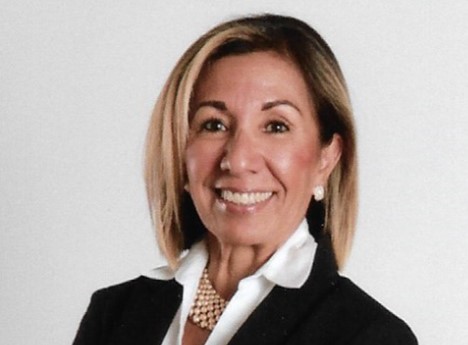Dr. Maria Armstrong: Leadership that Grows Over Time
ALAS executive director Dr. Maria Armstrong has demonstrated many times that she is someone who chooses the path toward greater learning

Leaders aren't born, they are made. And they are made just like anything else, through hard work. —Vince Lombardi
Understanding that leadership is a set of skills learned over time is at the heart of Dr. Maria Armstrong’s career—first in business, then as an educator, counselor, administrator, superintendent, part of the U.S. Department of Education recovery effort in Puerto Rico after Hurricane Maria, and now as the executive director of the Association of Latino Administrators & Superintendents (ALAS). Armstrong was appointed executive director just as COVID-19 closed down the country.
“I was appointed to the position as Executive Director for ALAS on March 1, 2020, and scheduled to move to DC on March 15th,” she says. “On March 13th, California enacted the stay-at-home order.”
Being thrown such a curveball presents a choice. “The only thing we really have control of in life is how we react,” Armstrong says. “So do I react from a place of distress or do I react from a place of opportunity and learning?” Armstrong has demonstrated many times that she is someone who chooses the path toward greater learning.
Evolutionary Leadership
Armstrong does not think of herself as a leader but as a person doing the job required of the position. “The difference between being a decision maker and a leader is that a decision maker is paid to make decisions, but a leader really needs to make some good decisions,” says Armstrong. “Over time, I started to learn the impact of a leader's words, the choice of words, and the choice of action and inaction.”
As a teacher and teacher leader, Armstrong reveled in her time as a teacher in Escondido Union High School District. “You’ve got these young people in front of you, and that is a privilege and a joy,” she says. After teaching, she moved into counseling to have a greater impact on more students. “It opened up my eyes to so many other aspects that were outside of the classroom that I started to get a bigger picture of what public education and our entire system entailed.”
Gradually, Armstrong worked her way up the district ladder until she became superintendent at Woodland Joint USD. There were detours on this part of her path. Armstrong was a liaison for the Riverside County Office of Education, working with 55 different high schools until the week before school started when her boss asked her to become a principal of one. “It never occurred to me to say no,” says Armstrong. “It was literally in a blink of an eye—a pivot into a different area I hadn’t planned to go.”
Tools and ideas to transform education. Sign up below.
She cautions, “It can be very flattering to receive that call, but it might not always be the right choice for you. Sometimes, though, you take on something for the greater good of the team, and in time you find out that it was necessary for your own growth.”
Armstrong is a dedicated educator and wanting what is best for others is a part of who she is as a person. “Even though I wasn’t really equipped, I should have asked, ‘What kinds of support are you going to provide? What are you expecting of me? How will we establish success or failure?’ But I didn’t ask any of those questions. You don’t know what you don’t know,” she says.
Tackling the “Isms”
In her growth as a leader, Armstrong experienced many of the “isms” all women leaders face in education, beginning with her time in the classroom. “I would have colleagues, typically men, who would ask me, ‘Why do you come dressed like that to work? You look like you’re going to a business office.’ And I would say, ‘Because this is my place of work.’”
Noting the many “isms” that were tossed across her path, Armstrong says, “I just face them head on and move forward. I wasn’t going to combat the issue with the same mentality presented to me. You have to be able to step away and look at it from a different angle, and you have to be comfortable in your own skin.” Armstrong maintains that addressing various forms of prejudice this way made her stronger and kept her on her leadership path.
Leaders are constantly evolving, says Armstrong. “If we're not making mistakes, we're sure as heck not growing.” She emphasizes the importance of learning the lessons from each challenge and the importance of carrying that learning forward to the next situation. “Sometimes, you have to take a side-step to look at a situation, which allows you to see the situation from a different angle and consider other possibilities afforded you to be able to transform where we can go.”
Inclusivity Post-COVID
“I don’t see our future through a lens of deficit or a longing to go back to normal. I see this through the lens of possibility and opportunity—what we can accomplish given what we’ve learned,” says Armstrong. “We all have varied backgrounds, whether it's economic or color, race or culture, and our voice has always been about having everybody at the table.”
“As a Latina educator, I’ve learned that leadership matters, and it impacts those we serve—our children of color and the marginalized. We need everyone to work toward equity for children—inclusionary not exclusionary, action and not just words, that is the important lift needed.”
Dr. Maria Armstrong is the executive director of the Association of Latino Administrators and Superintendents (ALAS)
Annie Galvin Teich has more than 25 years' experience in education writing and publishing. She is an edtech industry expert in content marketing and copywriting. As a regular contributor to Tech & Learning she focuses on the information needs of district decision makers.
